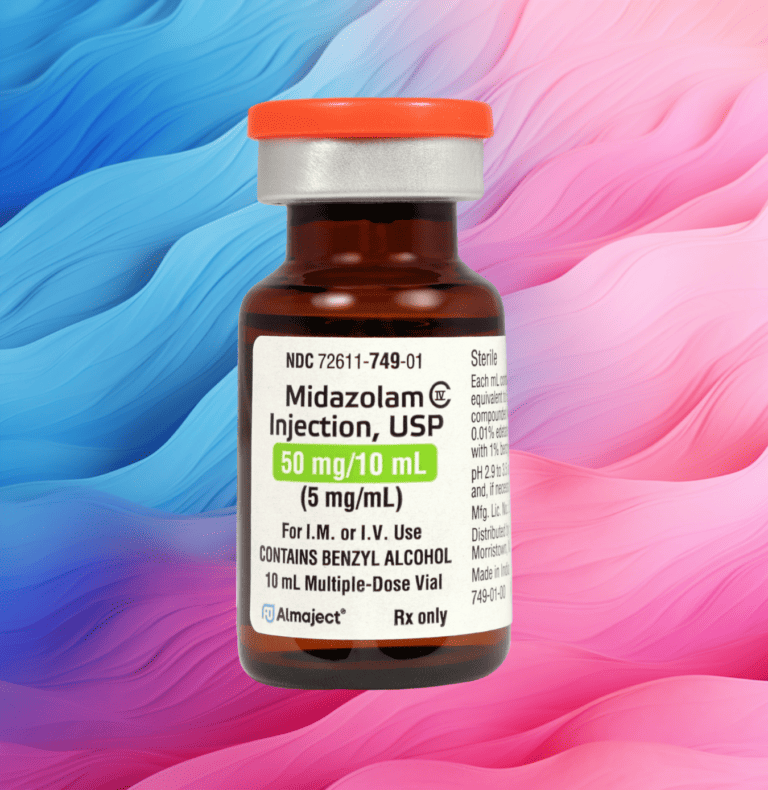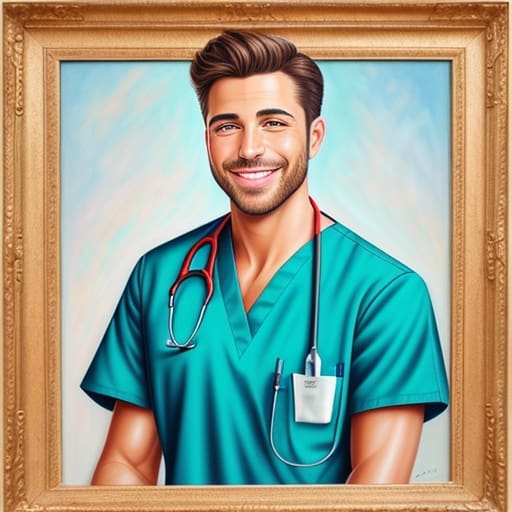Gay Nurses Face Unique Challenges in Healthcare

Gay nurses are integral threads in the diverse tapestry of the healthcare sector, a universe teeming with individuals from every conceivable background.
This industry, at its core, is dedicated to the principle of care, nurturing and healing lives. Despite the veneer of clinical professionalism, some groups within this vast tapestry confront unique hardships, their experiences often obscured.
Among these groups, the journey of gay nurses stands out. Our path, marked by resilience and triumph, also confronts challenges that are unique to our intersectional identity.
Gay nurses contribute significantly to the healthcare system, demonstrating strength, compassion, and dedication in their roles. We are a crucial part of the broader healthcare ecosystem, working tirelessly to provide high-quality care to patients. Yet, despite our contributions, we often face obstacles that hinder our professional growth and personal well-being.
These challenges, deeply rooted in societal biases and systemic issues, are not merely the concerns of a few individuals, but rather, they reflect on the inclusivity and integrity of the entire healthcare system.
Discrimination, prejudice, lack of support and inclusive policies, emotional toll, microaggressions, limited LGBTQ+ health education, persistent stigma, professional visibility issues, and intersectional challenges – these are the myriad hurdles that gay nurses often encounter in their professional journey.
These challenges can create an unwelcoming work environment, affect mental health, and even impact the quality of care provided to patients. Understanding these struggles is crucial in promoting a more inclusive and accepting healthcare environment.
In shedding light on the experiences of gay nurses, I aim to spark a dialogue that goes beyond the confines of the healthcare system. The issues faced by these professionals reflect larger societal attitudes and norms that need to be questioned and challenged.
It is about recognizing that, as we strive to provide care for all, we must also care for those who provide it. A truly inclusive healthcare system is one that not only caters to the diverse needs of its patients but also acknowledges and supports the diverse identities of its caregivers.
As we delve into the unique challenges faced by gay nurses, it is essential to remember the overarching objective – a healthcare system where every individual, regardless of their sexual orientation, feels valued, respected, and empowered. After all, a tapestry is most beautiful when every thread is acknowledged, appreciated, and allowed to shine. It’s time we ensured that gay nurses, those vibrant threads in our healthcare tapestry, are given the recognition and support we truly deserve.
Discrimination and Bias
Discrimination and bias within the healthcare environment represent significant obstacles for gay nurses. These are not isolated incidents, but rather systemic issues that permeate the very fabric of the healthcare sector.
Discrimination, in its various forms, is a stark reality that many gay nurses confront daily. Our professional capabilities are often unjustly overshadowed by prejudice tied to our sexual orientation, impeding our ability to fully integrate into our roles and contribute to the healthcare community.
Bias against gay nurses can emanate from multiple sources, including colleagues, supervisors, and patients. This bias can manifest itself in several ways – from overt acts of discrimination to subtle, implicit bias that influences daily interactions and decision-making processes.
Such behavior not only creates an unhealthy work environment but also undermines the morale and self-confidence of gay nurses. The impact extends beyond the individual, disrupting team dynamics, and ultimately affecting the quality of patient care.
These discriminatory practices against gay nurses are reflective of larger societal prejudices that find their way into healthcare settings. The bias they face can be as blatant as being passed over for promotions or as subtle as casual derogatory comments.
It’s not uncommon for gay nurses to feel the need to constantly prove their competency, to work harder than their peers just to attain the same level of respect and recognition.
Addressing discrimination and bias against gay nurses necessitates a comprehensive approach. It involves not only implementing inclusive policies but also fostering a culture of acceptance and respect. The goal is to build a healthcare system that values diversity and ensures every nurse, including gay nurses, can thrive in a supportive and inclusive environment.
This commitment to equality and inclusivity is not just beneficial for gay male nurses, but it also strengthens the overall healthcare system, promoting a diverse and empathetic workforce capable of delivering high-quality care to all patients.
Prejudiced Attitudes from Patient
Gay nurses are often confronted with prejudiced attitudes from patients, presenting a unique challenge in our professional practice. This prejudice can stem from deeply ingrained stereotypes or misconceptions about LGBTQ+ individuals, reflecting broader societal biases. Dealing with such attitudes can be emotionally taxing and create unnecessary barriers to providing quality care.
Prejudiced attitudes can manifest in various ways. Some patients may express discomfort or refuse care from gay nurses, while others may display derogatory behavior or make offensive remarks.
This can create a hostile environment, making it difficult for these nurses to establish a therapeutic rapport and provide effective care. The professional commitment of nurses to provide care can be severely tested when confronted with such overt prejudice.
Moreover, such prejudice can affect the trust and communication that are vital to the nurse-patient relationship. This can result in less effective care, as patient engagement and cooperation are critical to successful healthcare outcomes.
Gay nurses may also face the added emotional burden of managing their reactions to such prejudice while maintaining professionalism.
Addressing prejudiced attitudes from patients towards gay nurses requires a multifaceted approach. Educating patients about the principles of equality and respect that underpin healthcare provision can be one step towards addressing this issue.
Healthcare institutions can also implement policies to protect their staff from discriminatory behaviors, and provide support and resources for those who experience prejudice.
Ultimately, it is essential to foster a healthcare environment that respects the dignity and worth of every individual – both patients and healthcare providers alike.
As we strive for this goal, it is crucial to remember the invaluable contributions of gay nurses and support them in overcoming the challenges posed by prejudiced attitudes. Our resilience and commitment to patient care, even in the face of adversity, deserve our utmost respect and admiration.
Lack of Inclusive Policies
Inclusive policies form the backbone of a supportive and equitable work environment, especially in the healthcare sector. However, for gay nurses, the absence or insufficiency of these policies can present a significant barrier in our professional journey.
Inclusive policies provide a protective shield against discrimination, ensuring that all employees, regardless of our sexual orientation, have equal opportunities to grow and thrive.
Lack of inclusive policies can contribute to an unwelcoming or even hostile work environment for gay nurses. Without clear policies in place, discriminatory practices may go unchecked, and the voices of those affected may go unheard.
Inadequate policies can leave gay nurses vulnerable to biased treatment, hindering their professional growth and potentially affecting their mental health and job satisfaction.
Moreover, the absence of inclusive policies can send a detrimental message to gay nurses. It may signal that their experiences are not valued or that their concerns are not taken seriously. This can lead to feelings of isolation and marginalization, which can further exacerbate the challenges we already face in the workplace.
Implementing comprehensive, inclusive policies is a critical step towards creating an environment where gay nurses feel valued and supported. These policies should explicitly protect employees from discrimination based on sexual orientation, offer equal opportunities for professional development and advancement, and provide resources for support and advocacy. Furthermore, these policies must be accompanied by a genuine commitment to enforcement and regular review to ensure their effectiveness.
Inclusion goes beyond mere policy implementation. It involves cultivating a culture of acceptance and respect, where diversity is not just tolerated but celebrated.
Gay nurses, like all healthcare professionals, bring unique perspectives and strengths that enrich the healthcare sector. By fostering inclusivity through comprehensive policies and a supportive culture, healthcare institutions can ensure that gay nurses, and all employees, have the opportunity to reach their full potential.
This commitment to inclusivity and diversity ultimately benefits the entire healthcare system, contributing to a more empathetic, understanding, and effective workforce.
Emotional Toll
The emotional toll experienced by gay nurses is a critical, yet often overlooked aspect of the challenges they face. Navigating a professional landscape that may be punctuated by discrimination, bias, and prejudice can result in significant emotional stress and fatigue. This emotional burden can impact not only their professional performance but also their personal well-being.
One of the key aspects of this emotional toll is the pressure to hide our identity or navigate complex decisions about disclosure. The fear of potential negative reactions or discrimination can lead many gay nurses to conceal their sexual orientation at work. This need for constant self-editing and concealment can be emotionally draining and can create a sense of isolation.
Conversely, the decision to openly embrace their identity in the workplace can also bring emotional challenges. While it can provide a sense of authenticity and freedom, it may also expose us to potential bias or prejudice. The emotional resilience required to handle such situations is immense, and the strain can lead to stress, anxiety, or burnout over time.
The emotional toll can also be exacerbated by microaggressions, lack of support, or limited access to LGBTQ+ specific healthcare resources. These factors can contribute to feelings of marginalization and can negatively impact mental health.
Addressing the emotional challenges faced by gay nurses requires a commitment to foster a supportive and inclusive work environment. Providing resources such as counseling services, employee resource groups, and mental health support can go a long way in mitigating the emotional toll. Policies and practices that promote respect and equality, combined with education and awareness programs, can also contribute to reducing stress and fostering emotional well-being.
Above all, acknowledging the emotional challenges faced by gay nurses is crucial. Recognition of these issues is the first step towards creating a healthcare environment where every individual, including gay nurses, can thrive professionally while also maintaining our mental and emotional health.
Our emotional well-being is not just essential for us as individuals, but it is also integral to the provision of compassionate, high-quality care to patients.
Microaggressions
Microaggressions, subtle yet harmful forms of discrimination, represent another significant challenge for gay nurses in the healthcare environment. While they may not be as overt as explicit bias or discrimination, microaggressions can be equally, if not more, damaging, creating an undercurrent of hostility that can erode self-confidence and professional satisfaction.
Microaggressions towards gay nurses can take various forms. These can include offhand remarks, jokes, or comments that subtly belittle or dismiss their identity. They can also manifest as dismissive attitudes or behaviors, such as disregarding their opinions or contributions in professional settings. While these actions may seem minor when viewed in isolation, their cumulative impact can create a hostile and unwelcoming work environment.
The insidious nature of microaggressions often makes them difficult to address. They can be easily dismissed or rationalized as harmless or unintentional, making it challenging for gay nurses to voice their concerns. This can lead to feelings of invalidation, and over time, can contribute to stress, burnout, and a decrease in job satisfaction.
Addressing microaggressions requires a systemic effort to foster a culture of respect and inclusivity. This includes implementing comprehensive training programs that raise awareness about the impact of microaggressions on LGBTQ+ healthcare professionals, including gay nurses. Encouraging open conversations about these issues can also help to break down barriers and foster mutual understanding.
Moreover, healthcare institutions should ensure that their policies include clear procedures for reporting and addressing incidents of microaggressions. Providing a safe and supportive avenue for gay nurses to voice their concerns is crucial in creating a more inclusive and respectful workplace.
Tackling microaggressions is an essential part of ensuring that all nurses, including gay nurses, can thrive in our professional roles. By addressing these subtle forms of discrimination, we can help create a healthcare environment where every individual feels valued, respected, and empowered to provide the best possible care to their patients.
Professional Visibility
Professional visibility, or the recognition and acknowledgment of one’s contributions in the workplace, is an essential aspect of career advancement and satisfaction.
However, for gay nurses, achieving this visibility can present unique challenges. Systemic biases and barriers within the healthcare system can often limit their opportunities for professional growth and recognition.
Gay nurses may face obstacles in obtaining leadership positions or roles that offer greater responsibility. These barriers can be due to explicit discrimination or more subtle biases that influence decision-making processes.
For example, assumptions about their competence, commitment, or ability to lead based on their sexual orientation can hinder professional advancement.
Limited professional visibility can have several consequences for gay male nurses. It can result in decreased job satisfaction, lower motivation, and a sense of stagnation in their careers. Moreover, it can also contribute to a feeling of invisibility or marginalization, impacting their sense of belonging within the healthcare community.
Addressing the issue of professional visibility for gay nurses requires a concerted effort at all levels of the healthcare system. It involves challenging and changing biases, stereotypes, and systemic barriers that hinder career advancement. Policies and practices should be implemented to ensure that performance evaluations, promotions, and leadership opportunities are fair, transparent, and free from bias.
In addition, mentorship programs and leadership training can play a crucial role in enhancing the professional visibility of gay nurses. These initiatives can provide us with the skills, knowledge, and support needed to navigate career advancement and obtain leadership positions.
Ultimately, promoting professional visibility for gay nurses is about recognizing and valuing our contributions to the healthcare field.
It is about ensuring that we have equal opportunities to grow, thrive, and lead within their profession. Achieving this can enhance the diversity of perspectives and experiences within healthcare leadership, ultimately contributing to a more inclusive and effective healthcare system.
Intersectionality

Intersectionality, a concept that captures how different aspects of a person’s identity can intersect and influence their experiences, adds another layer of complexity to the challenges faced by gay nurses.
If these nurses also belong to other marginalized groups, such as being a person of color, being differently-abled, or belonging to a religious minority, they may face compounded discrimination and unique obstacles in their professional practice.
Intersectionality recognizes that people’s identities are multifaceted, and these different facets can interact to influence their experiences of privilege or discrimination.
For gay nurses who also belong to other marginalized communities, their experiences in the healthcare system may be shaped by multiple forms of bias and prejudice. For example, a gay nurse who is also a person of color might face discrimination based on both his sexual orientation and his race.
These intersectional challenges can amplify the difficulties experienced by gay nurses. They may encounter additional stereotypes, biases, and systemic barriers that further complicate their professional experiences. This can lead to a sense of alienation and increase the emotional toll of navigating the healthcare environment.
Addressing intersectional challenges requires an understanding of the nuanced experiences of individuals who occupy multiple marginalized identities. It is essential to acknowledge these experiences and implement policies that protect all employees from discrimination, regardless of the intersection of their identities.
Training programs and awareness campaigns can also play a crucial role in addressing intersectional discrimination. By educating healthcare professionals about the concept of intersectionality, we can foster a more inclusive and empathetic environment that respects and values the diverse identities of all staff, including gay nurses.
Lack of Support System
Support systems in the workplace play a critical role in promoting employee well-being, engagement, and professional growth. However, for gay nurses, there is often a lack of such supportive structures. This absence can significantly exacerbate the challenges we face, making it even more difficult to navigate the professional landscape.
Employee resource groups, peer support networks, and counseling services can provide much-needed support for gay nurses. They can offer a safe space to share experiences, seek advice, and build connections with colleagues who understand their unique challenges.
However, in many healthcare institutions, such support systems specifically tailored to the needs of LGBTQ+ employees, including gay nurses, are scarce or even nonexistent.
The lack of adequate support systems can leave gay nurses feeling isolated and unsupported. It can contribute to increased stress, burnout, and dissatisfaction in our roles.
Moreover, without appropriate support, us nurses may struggle to deal with instances of discrimination or bias, further impacting our well-being and job performance.
Addressing the lack of support systems for gay nurses requires a multi-faceted approach. Healthcare institutions need to establish and promote employee resource groups and peer support networks that cater specifically to LGBTQ+ employees.
Such groups can provide a platform for gay nurses to share experiences, offer mutual support, and advocate for our needs and rights within the workplace.
Moreover, access to mental health resources, such as counseling services, should be readily available. These services can help gay nurses manage the emotional toll of our work environment and provide strategies to cope with stress and burnout.
Inclusive mentorship programs can also serve as a valuable support system. By pairing gay nurses with mentors who can provide guidance, encouragement, and advocacy, these programs can foster professional growth and development.
Conclusion
As we have explored, the unique challenges faced by gay nurses within the U.S. healthcare system are multifaceted, ranging from discrimination and bias to a lack of inclusive policies and support systems.
These issues highlight the pressing need for change within the healthcare sector, a shift towards a more inclusive and supportive environment. It is imperative to foster a culture that not only acknowledges the existence of these challenges but also actively works to address them.
This requires ongoing dialogue, awareness-raising efforts, and policy changes at all levels of the healthcare system. (OutCare.org is a great example of this)
By doing so, we can ensure that all healthcare professionals, including gay nurses, can thrive in our roles, providing compassionate and high-quality care to all patients.
As a society, we must continually strive to promote inclusivity, equality, and respect within the nursing profession and the wider healthcare field.





